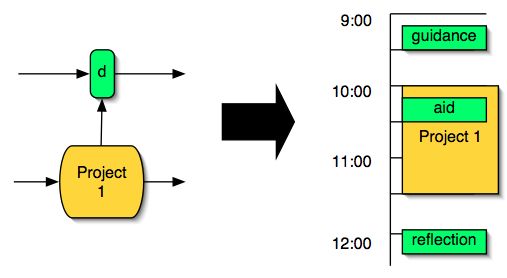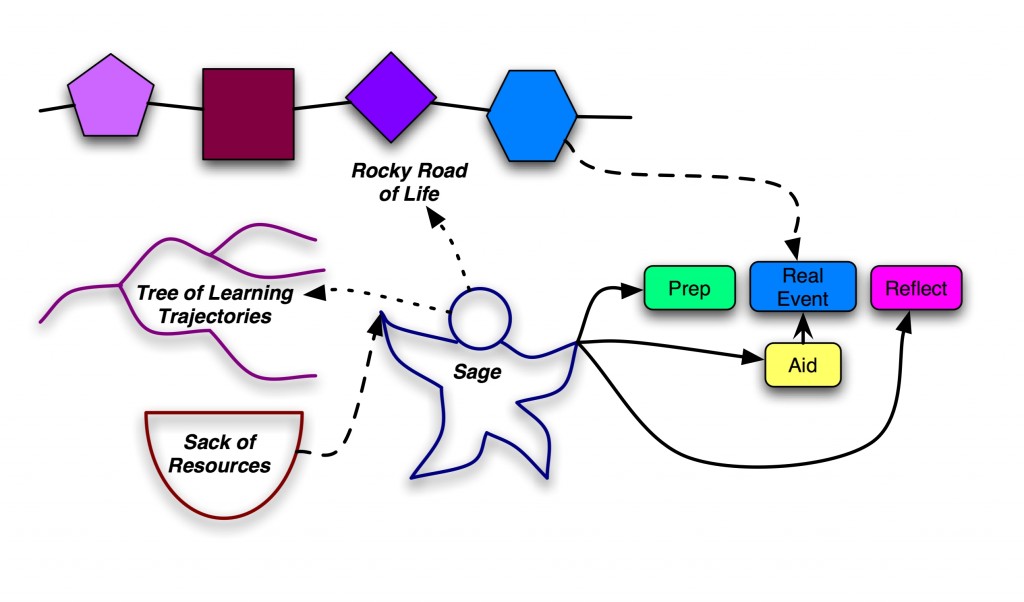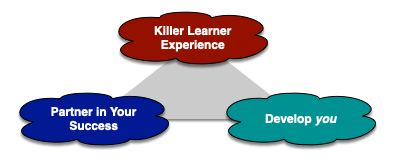Last week, I posted about a model where a system could provide a sage who looks at the events of your life and provides support. I want to elaborate that model by looking at it in a different way.
 The notion here is that you have events in your life, across the bottom. And you have some learning goals, e.g. to learn about project management, and about running meetings. You might get some initial content about those two goals, but then let’s focus on developing that learning over time.
The notion here is that you have events in your life, across the bottom. And you have some learning goals, e.g. to learn about project management, and about running meetings. You might get some initial content about those two goals, but then let’s focus on developing that learning over time.
The events in your life give you a chance to use them as learning experiences, not just performance opportunities. If there are not enough in your life, you might have interstitial activities (those in dashed lines), but you can be developed across learning goals abcd, and uvwxyz, both through delivered experiences, and with learning wrapped around real experiences.
 Let me make that latter clearer. Say you’ve got some event like project work, and an associated learning goal (e.g. concept ‘d’ in a curricula). A system could see the calendar entry for the project work and, through tagging or other semantic means, recognize the relationship with learning goal ‘d’. Then, some relevant activation and concept material might precede the event, an aid could appear during, and either a self-evaluation metric or a connection to a live person could happen afterward. Delivered, for instance, through mobile devices.
Let me make that latter clearer. Say you’ve got some event like project work, and an associated learning goal (e.g. concept ‘d’ in a curricula). A system could see the calendar entry for the project work and, through tagging or other semantic means, recognize the relationship with learning goal ‘d’. Then, some relevant activation and concept material might precede the event, an aid could appear during, and either a self-evaluation metric or a connection to a live person could happen afterward. Delivered, for instance, through mobile devices.
The goal is to use the events in your life as learning opportunities as much as possible (or preferable). We can also mix in some simulated practice (e.g an alternate reality game) if it’s not occurring at a sufficient rate in real life, but the goal is to match the learning development plan to the rate at which we effectively learn. And, to be clear, we do not learn effectively by a one-off knowledge dump and a quiz, as much of what we do actually works out to be.
As I’ve mentioned before, we have the magic, the sufficiently advanced technology Arthur C. Clarke talked about, to hand. We should start using it to develop us towards our goals in appropriate ways. The opportunity is there; who’s ready to seize it?

 An absolutely killer learning experience
An absolutely killer learning experience